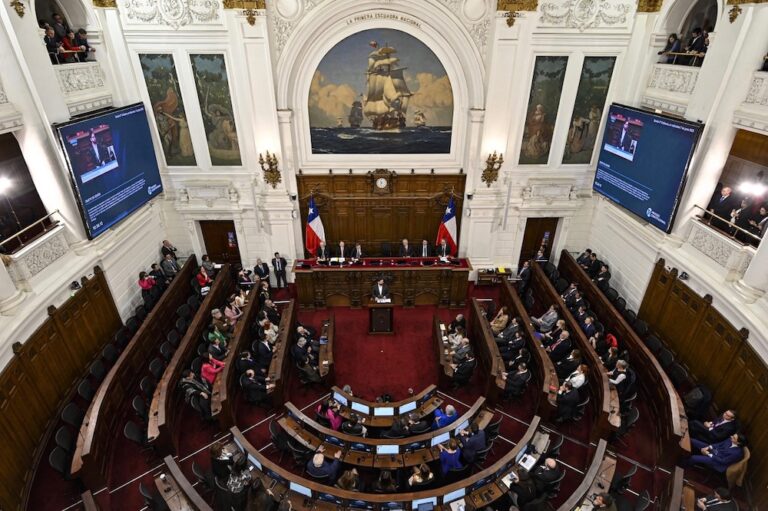(IPYS/IFEX) – Fundacion Terram, a non-governmental organisation (NGO) that researches and promotes sustainable development, won its first appeal for access to information filed with a lower level court against the National Forestry Corporation (Corporacion Nacional Forestal, CONAF). CONAF is an Agriculture Ministry agency in charge of, among other things, overseeing all matters pertaining to forestry […]
(IPYS/IFEX) – Fundacion Terram, a non-governmental organisation (NGO) that researches and promotes sustainable development, won its first appeal for access to information filed with a lower level court against the National Forestry Corporation (Corporacion Nacional Forestal, CONAF). CONAF is an Agriculture Ministry agency in charge of, among other things, overseeing all matters pertaining to forestry management.
The judicial action, case # C-4173-2000, titled “CLAUDE REYES/CONAF EXECUTIVE DIRECTOR”, dates back to 1998, when Fundacion Terram, directed by economist Marcel Claude, carried out a series of analyses on four properties in the south of Chile belonging to different companies (Bosques Maderas S.A., Inversiones Crannsield Chile Ltda., Emasil and Forestal Neltume Carranco). This was done under one of Terram’s programmes on native forest care. The studies demonstrated that the companies were not complying with forestry management plans.
Terram submitted the results to CONAF, the agency in charge of monitoring and dealing with complaints pertaining to forestry practice violations. CONAF stated that they would verify the veracity of the complaints brought forth by the environmental NGO.
Rosario Vial, in charge of legal affairs for Terram, informed IPYS that from then on there were meetings and letters exchanged between the NGO and the public agency, “but the Foundation never obtained the real information about what happened with our [Terram’s] complaint. We only had the promise that CONAF would carry out an investigation and the records would be given to the CONAF regional director.”
Faced with unsatisfactory responses from CONAF, Terram sent a letter to CONAF on 24 July 2001 requesting information on the progress of the investigation, as per the Administrative Integrity Law (Ley de Probidad Administrativa). In the letter, Terram requested a copy of CONAF’s executive committee’s resolution instructing the regional director to initiate an investigation. It also asked for the results of the analyses carried out by CONAF and the evaluation of these results.
However, CONAF did not reply, which prompted Fundacion Terram to use the right to access information, consecrated in the Administrative Integrity Law, and file a motion to this effect in September 2000.
In the 12 June ruling on the motion, Mario Torres Labraña, Santiago 29th Civil Court judge, stated that “overseeing the private sector, far from posing an obstacle, is of assistance and an important contributing factor. As such, the actions of the entity in question (Fundacion Terram), which using its own resources and investigation detected irregularities in the (forestry) management plans developed in four cases, should be commended. The four cases were referred to the appropriate authority so that they could be brought before the relevant courts. [Had Terram not taken this action] it is not certain that the authority in question would have been able to detect, investigate and sanction these incidents. Therefore, the argument that the private companies’ privacy was intruded upon cannot be used to impede CONAF’s overseeing function.”
The judge further ordered the defendant “to provide the plaintiff with the requested information (…) within ten days of being informed of this ruling, or suffer the consequences.”
According to Vial, this is a very important ruling, not only because it recognises the public agency’s obligation to provide the requested information, but also because the judge acknowledged the importance of the public’s monitoring role. “In other words, citizens should feel they have the right to oversee the government’s actions and ask for explanations.”
CONAF appealed the judge’s decision before the Santiago Court of Appeals, which is the highest court that can determine what the outcome of the case will be. In accordance with the Administrative Integrity Law, appeals courts tend to rule in favour of those appealing motions but, in Vial’s opinion, these decisions can take as long as 3 or 4 months. “I do not believe there will be a ruling before then,” she stated.


